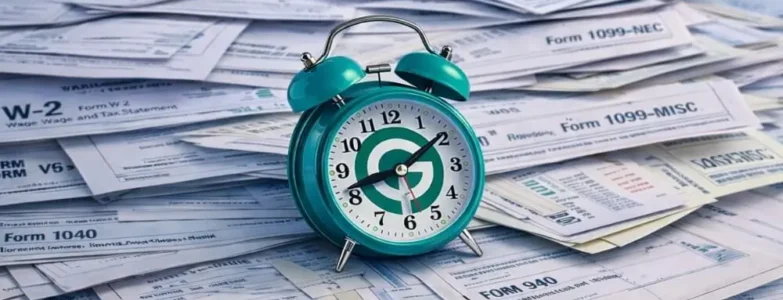The Guillen Pujol CPAs Newsroom
On June 30, 2025, Florida Governor Ron DeSantis signed House Bill 7031 into law. This measure repeals the 2% state sales tax and eliminates local authority to apply discretionary surtaxes on commercial rental payments. The repeal takes effect October 1, 2025, and is scheduled for codification in the 2025 Session Laws of Florida, subject to official publication. The Florida Department of Revenue (DOR) formalized the implementation guidelines through TIP 25A01-04, published on July 24, 2025.
This change ends a tax policy that stood for over five decades. Since at least 1969, Florida had been the only U.S. state to impose a statewide sales tax on commercial leases. While certain cities like New York impose similar levies, Florida’s statewide tax often added 6%–7.5% to rental costs—something many business owners failed to anticipate, especially when relocating from out of state.
With this repeal, landlords, tenants, commercial real estate professionals, and business stakeholders must reassess lease structures, invoicing procedures, and tax reporting obligations to adapt to the updated landscape.
Sales Tax on Rent Will No Longer Apply After October 1
Effective October 1, 2025, commercial rent payments will no longer be subject to Florida’s state sales tax or local discretionary surtaxes, provided the occupancy period begins on or after that date.
This applies to:
- Leases of office, retail, or warehouse space
- Self-storage units and industrial facilities
Shared-use commercial licenses—such as kiosks, vending machines, or stylist chairs
What matters is not the payment date, but the date when occupancy begins. For example:
- Rent paid in September for an October term is not taxable.
- Rent paid in October for a September term remains taxable.
Who Is Affected and How the Repeal Impacts Leaseholders
Florida’s repeal of the commercial rent tax affects a broad range of stakeholders involved in leasing, occupying, or managing commercial property within the state. Here’s how different groups are impacted:
- Commercial landlords and property managers will no longer be required to apply state sales tax or local discretionary surtaxes to rent payments for occupancy periods beginning on or after October 1, 2025. This alters how rental income is treated for tax purposes.
- Commercial tenants, particularly those with large footprints or multi-year lease agreements, will see a direct reduction in occupancy costs. The repeal effectively lowers total rent expenses by 6%-7.5% depending on jurisdiction.
- Out-of-state business owners relocating to Florida will no longer encounter an unexpected tax burden on commercial leases—an issue that previously complicated budgeting and lease negotiations for newcomers.
- Businesses operating under shared-use arrangements, such as stylist chairs, kiosk licenses, or vending spaces, are also impacted. These licenses, previously subject to tax, will now be exempt if they pertain to post–October 1 occupancy periods.
- Entities with bundled or mixed-use lease structures must account for how the repeal affects different portions of their contracts. Where rent was partially taxable, those allocations may now shift entirely into exempt territory depending on how space is used and billed.
These are the groups most likely to be affected by the repeal. Based on this, business owners and leaseholders in these categories should consider several key steps to protect their resources and ensure compliance with the new requirements.
Key Considerations for Landlords and Tenants
Filing Obligations Remain Through September
Landlords must file returns through September 2025 based on their reporting frequency—monthly, quarterly, semiannual, or annual. After final submission, the Florida Department of Revenue (DOR) will update account status automatically, even if no tax is due.
Refunds Require Documentation and Action
If tax was mistakenly collected on non-taxable rent, landlords must first refund the tenant before submitting Form DR-26S to request reimbursement from the DOR. Records must show proof of refund and be retained for three years.
Florida Tax Credit Scholarship Program Changes
As of July 1, 2025, the state will no longer issue new credit allocations based on commercial rental tax. Credits earned before that date can only be applied to pre-October 1 occupancy.
Lease Agreements Must Be Updated
Clauses referencing “applicable sales tax” or “tenant’s tax responsibility” should be updated to reflect the exemption. Billing systems must also remove tax lines for exempt periods to avoid confusion or overcollection.
Given these changes, even small missteps can trigger reporting discrepancies or delay refunds. Consulting with a CPA and tax advisory firm ensures that every adjustment—from lease language to billing systems––is implemented with precision, reducing the risk of compliance issues or denied refunds during the DOR’s audit window.
Florida Landlords and Tenants: A CPA is Your Best Asset After the Commercial Rent Sales Tax Elimination
Understanding which portions of rent remain taxable, how to allocate payments that span taxable and non-taxable periods, and how to submit refund claims properly requires expert guidance. A Certified Public Accountant (CPA) can help you:
- Evaluate your lease structure and billing documentation
- Distinguish exempt vs. taxable items in mixed-use or bundled contracts
- Prepare refund applications under Form DR-26S with appropriate evidence
- Maintain compliance during DOR’s three-year audit window
- Structure financial reporting in line with updated Florida regulations
Even if your business benefits from the repeal, mishandling the transition can result in missed credits, rejected refunds, or unnecessary tax exposure. That’s where we come in.
Guillen Pujol CPAs works directly with commercial property owners, lease administrators, and multi-entity operators to help them understand and implement tax changes like this with precision and clarity. Whether you’re reviewing lease clauses, modifying billing templates, or preparing final filings through September to close out your last reporting period accurately.
We help clients with multi-state operations or layered lease structures document transitions properly under Florida law. If your past lease payments included commercial rent tax—or if your current terms involve multiple components—we’ll help you manage the transition and ensure everything is documented in compliance with Florida regulations.
This is more than a regulatory update—it’s an opportunity to reset systems, recover eligible funds, and align financial operations with the new tax landscape in Florida.
About Our Firm
At Guillen Pujol CPAs, our Miami firm specializes in high-income tax planning, international tax services, tax management, capital gains tax advisory on foreign-owned property (FIRPTA). We also outsourced bookkeeping, compliance, and controller services, among other accounting and tax advisory solutions. Our team of experienced tax professionals has helped thousands of clients navigate complex regulations. This includes areas like corporate maintenance and compliance, tax compliance and optimal tax management strategies, business financial performance evaluation, and compilation services. As leading experts among Miami CPA firms, we are committed to providing exceptional business and tax consulting services tailored to your needs.
Take Action Now: Need professional tax guidance? Contact us today.
Planning Tomorrow, Together, with GPCPAs.
Trusted by Businesses Worldwide
Editor’s Note: This post is part of the ‘GPCPAs Info Hub,’ an initiative dedicated to empowering you with the knowledge and strategies needed to navigate the complexities of the U.S. tax system and financial strategies. Visit our Information Hub, a curated resource offering the latest in tax, economic, and business news, alongside actionable guidance on tax strategies, accounting, and business advisory—because Planning Tomorrow starts here.
- 2026 Tax Calendar: Your Guide to IRS Deadlines All Year
- How Realtors Can Reduce Their Taxable Income Through Smart Entity Selection and Advanced Tax Planning
- After the Shutdown: How IRS Cuts Continue Affecting Taxpayers
- IRS Tax Brackets for 2026: What Business Owners Need to Know
- Florida’s Hunting, Fishing & Camping Sales Tax Holiday 2025: A Guide for Shoppers & Businesses











